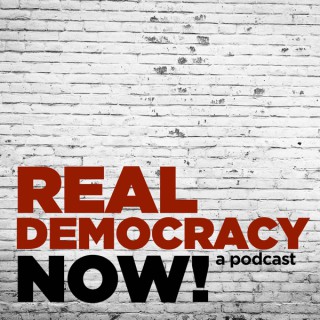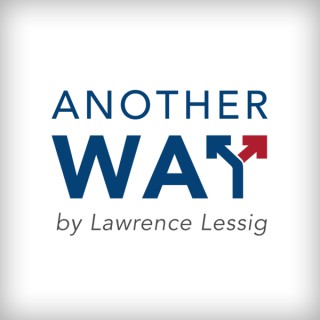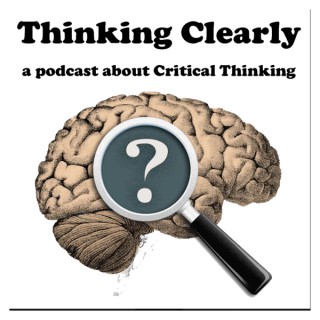Podcasts about professor john gastil
- 5PODCASTS
- 6EPISODES
- 45mAVG DURATION
- ?INFREQUENT EPISODES
- Jun 25, 2020LATEST
POPULARITY
Best podcasts about professor john gastil
Latest podcast episodes about professor john gastil
Professor John Gastil on Bringing Reason Back Into Politics [6-25-20]
This week, Larry Lessig talks with John Gastil, a Professor at the McCourtney Institute for Democracy, about how we can make better political decisions. They discuss the polarized media landscape and specific steps we can take to improve deliberation, understanding, and the use of reason. Support us on Patreon: https://www.patreon.com/EqualCitizens
Episode 3 The history of deliberative mini-public with John Gastil
In this episode, Carson speaks with Professor John Gastil from Penn State University about the history and development of deliberative mini-publics. John is the author of many books and papers on deliberative democracy including Democracy in Small Groups and is currently undertaking research on the Oregon Citizens' Initiative Review and has a book coming out about this research soon. John identifies that the term mini-public has become a term of art and means a randomly selected group with a focused charge, although there is a lot of varieties to how these processes are designed. The core idea of deliberation is ‘weighing’ of evidence, concerns, perspectives before making a decision or recommendation. John sees these type of processes starting with Ned Crosby (see episode 1) and Peter Dienel (see episode 2). With the next major developments being deliberative polls run by James Fishkin (who we will interview in a later episode) the British Columbia’s Citizens’ Assembly where a citizens’ assembly was charged with drafting new legislation the Oregon Citizens’ Initiative Review which he is researching, and finally The Irish Citizens’ Assemblies which have had perhaps the most real-world impact. John suggests that the inter-disciplinary nature of deliberative democracy and the practical nature of the field may be both strengths and weaknesses for the field. Whilst he has an affinity with the practical side of facilitation deliberative processes he sees that his value add is being able to get research grants and write academic articles. Both Carson and John note that facilitators often come from backgrounds where they have developed interpersonal skills particularly around working with groups, for example as educators, within religious groups. He recommends the book Freedom is an Endless Meeting by Francesca Poletta which talks about group processes in social movements. He thinks the processes of deliberative mini-publics have become more structured over time and he sees this as a good thing because structure and process provide protection to all participants. See The Tyranny of Structurelessness by Jo Freeman. John identifies the best facilitators as being humble yet confident good listeners, and flexible. John and Carson agree that having more than one facilitator allows for a range of skills to be made available to the deliberative mini-public as well as a way to build the skills of facilitators new to the deliberative processes. Sometimes co-facilitation is done by splitting the focus of facilitation roles between process and task. John suggests that we should think about both deliberative democracy and democratic deliberation to provide a focus on different aspects of the process. His key conclusion is that deliberative mini-publics work - they demonstrate that all is not lost in democracy today. Music acknowledgement.
#35-The Relationship of Critical Thinking to Cultural Cognition and Identity Protective Cognition with Guest John Gastil
Have you ever wondered why some people have such different opinions than you on certain hot button issues; for example: climate change or gun control? Why don’t we all just objectively look at the evidence and weigh the risks against the benefits? To help answer these types of questions, Bob and Julia along with guest, Professor John Gastil from Penn. State University, explore the concepts and research in an intriguing area of human studies called Cultural Cognition.
Ballot questions let voters decide on big issues. But with ad campaigns and special interests, reliable information can be hard to find. Professor John Gastil outlines an innovative solution—give a small group of citizens all of the information they need to make up their minds and share their findings with fellow voters. For More on this Topic: Read Gastil’s two-page brief on Citizens’ Initiative Reviews. Check out his piece in The Washington Post Further Reading: Building Public Trust and Improving Policy Through Deliberative Engagement Between Officials and Citizens, Daniel Patterson, University of Utah How Do Effective Associations Spur Citizen Engagement?, Hahrie Han, University of California, Santa Barbara
3.3 Legislature by Lot with Professor John Gastil
Welcome to episode 3 in Season 3 of Real Democracy Now! a podcast. Season 3 is about elections, electoral systems, electoral reform and alternatives. In this episode I’m speaking with Professor John Gastil. John is a Professor in the Communication Arts and Sciences and Political Science at the Pennsylvania State University as well as a Senior Scholar in the McCourtney Institute for Democracy. He studies political deliberation and group decision making across a range of contexts. Recently John and Erik Olin Wright, as part of the Real Utopias project, held a three-day workshop called Legislature by Lot. Thanks to David Schecter I was able to interview John shortly after this workshop to learn more about what was discussed. A copy of the agenda for the workshop which includes the attendees is available with the Show Notes for this episode. John described this workshop as ‘a deliberation about deliberation’. John spoke about the origins of the Legislature by Lot workshop [1:32] the different ways to implement sortition (random selection) [3:54] some of the arguments in favour of a legislature selected by lot [5:44] different models of sortition [7:40] responding to criticisms of legislature by lot [10:11] how to design an oversight body to support a legislature selected by lot [14:10] the prospect of institutional change and transition strategies [18:34] moving the agenda of using sortition forward [23:43] how much work is happening around the world to test and promote the use of sortition [28:35] what representation and accountability means for bodies selected by sortition [30:29] deliberation, consensus, contention and voting [34:35 and 38:50] what the workshop agreed on [43:18] what might happen after the workshop: building links between researchers and practitioners [45:34] responses to critiques of empowered mini-publics [49:35] when the book arising from the workshop will be published [53:07] John mentioned the work of the Sortition Foundation, the newDemocracy Foundation to promote the use of sortition. Thank you for joining me today. In the next episode I will be speaking to Dr Alan Renwick about electoral reform around the world [54:11]. I hope you’ll join me then.
3.2 Patterns of democracy with Prof Lijphart
Welcome to episode 2 of Season 3 of Real Democracy Now! a podcast. Season 3 is looking at elections, electoral systems, electoral reform and alternatives. In today’s episode, I’m talking with Professor Arend Lijphart about his work identifying two main categories of democracies which relate in part to their electoral systems. Arend is a Professor Emeritus of Political Science at the University of California. His field of specialisation is comparative politics. He is the author or editor of more than a dozen books, with the two editions of his Patterns of Democracy from 1984 and 2012 being perhaps his most well-known and the subject of our conversation today. I spoke with Professor Lijphart about How he came to devote his life to the detailed empirical analysis of democracy in multiple countries around the world [1.10] The relationship between his empirical work and his theory around patterns of democracy [5.30] The variables he uses to demonstrate that consensual democracies outperform majoritarian democracies [18:35 ] Criticisms that his approach does not apply to developing non-Western democracies [28.10] In the next episode I’ll be talking to Professor John Gastil, a Professor in the Department of Communication Arts & Sciences at Penn State College of Liberal Arts, about a workshop he recently co-hosted with Erik Olin Wright, a Professor of Sociology at the University of Wisconsin-Madison, titled Legislature by Lot [32.37] I hope you’ll join me then.








